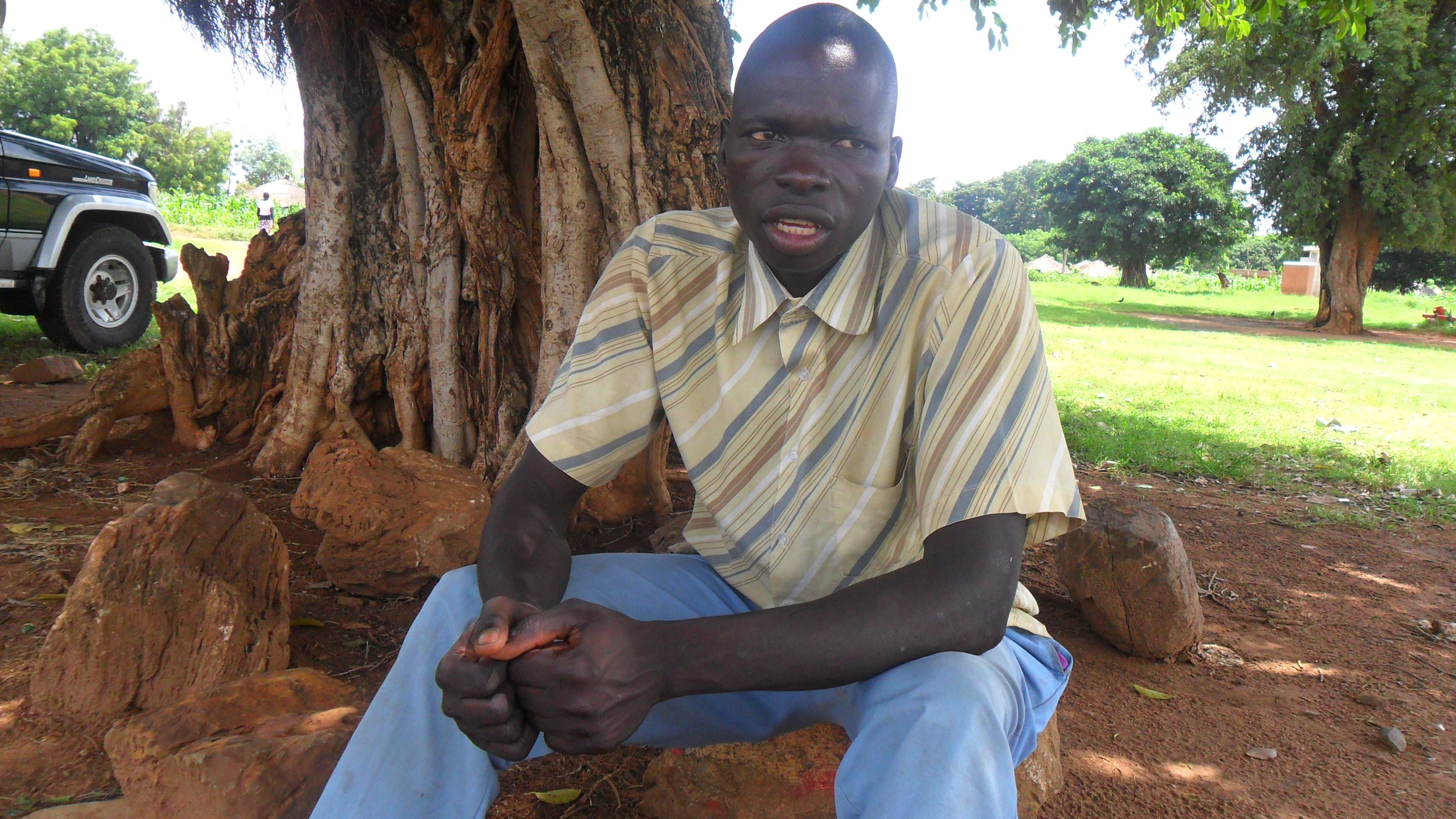What it takes to be REAL: A conversation with a young father in Uganda, Part I
Gender-based violence is recognized as a significant health and human rights issue that prevents women, families, and countries around the world from achieving their full potential. In addition to numerous physical and mental health effects, early childhood experiences of violence are linked to experiences of violence in adulthood. This is true for both boys and girls. Boys who witness or experience domestic violence are more likely to perpetuate relationship violence, and girls are more likely to be victims of gender-based violence in adulthood.
The Responsible Engaged and Loving (REAL) Fathers Initiative was born from a desire to reduce intimate partner violence and harsh punishment of children among young fathers (ages 16-25) in post-conflict northern Uganda. Over the past two years, young fathers participated in a mentorship program and awareness campaign. Mentors from the community were trained to support four fathers each, meeting twice a month with the mentees and their wives.
The goal? Challenge the gender norms and sexual scripts that often trigger coercion and violence in relationships and teach effective parenting, communication, and problem-solving skills.
 IRH’s Cindy Anena sat down with Peter, a 24 year-old young father from Amuru District in northern Uganda to talk about his personal struggle toward positive behavior change.
IRH’s Cindy Anena sat down with Peter, a 24 year-old young father from Amuru District in northern Uganda to talk about his personal struggle toward positive behavior change.
Cindy: What are your overall impressions of being involved as one of the young fathers in this initiative?
Peter: There have been a lot of changes in my life, like learning how to be a father to my children. I never imagined I would have the chance to benefit from teaching of this kind. I never had any money to go to school and learn these things.
Before, I was very popular in the community and often referred to as a ‘general’—a rank in the military—just because I was very serious in drinking alcohol. I reflected on all of these things, and I realized the challenges and gaps I had in my family were worsening my life. Everyone, including my wife and children, used to fear me.
Cindy: Why do the community members refer to you as a ‘general’?
Peter: I was very generous and I would always buy anyone alcohol as long as I had the money. I was unbeatable in abusing alcohol. Whenever there was a communal digging (like for growing sweet potatoes), I would always be the most hardworking because of the money I could get to buy alcohol. I always volunteered to do it all, and I became more popular; the name ‘general’ was even stronger.
Cindy: How easy was it for you to give up drinking alcohol?
Peter: One day, I tried to quit using alcohol, but it was very hard. I often got tempted and would crave it; sometimes I would take it in small portions. However, I managed to live without it for four months [during the REAL Fathers sessions]. My mentor also takes alcohol, but he explained to me that he does it in moderation.
In the past, the decision I made to stop drinking was done in the presence of all my clan members. I would swear not to drink. But with the negative influence from some friends, I would return to drinking after six months. Some bad friends made me believe activities like sports betting was a way of making more money, yet it was wasting money. I remember I backslid and continued drinking. It was hard.
Cindy: Do you have any regrets about those actions?
Peter: Yes, I have a lot of regrets. I would always wake up with plans for the day. But I only knew alcohol as “the way,” so whenever I did something wrong, I would get blamed. Then I realized this behavior had taken me down a bad path, so I have made a decision to quit alcohol. If alcohol wants to come back, then it will find its own way in my mouth.
I also realized I was not helping my wife with farming activities; she used to do it alone. We had no plans for the future. I never cared if my family had anything to eat, or if my children were healthy or not. To make it worse, the household chores that should have been shared were never a reality. I would become drunk and get so dirty and put all the clothes in water. I would expect my wife to wash them even when there was no money to buy washing soap. Should she not do it, I would quarrel and even beat her. I completely had no sympathy at all.
“I never cared if my family had anything to eat, or if my children were healthy or not.”
What’s next for Peter? Read about his life after the REAL Father’s Initiative in Part II of his story.
 Where We Work
Where We Work  Press Room
Press Room  FACT Project
FACT Project  Passages Project
Passages Project  Learning Collaborative
Learning Collaborative  Search All Resources
Search All Resources  Social Norms
Social Norms  Fertility Awareness Methods
Fertility Awareness Methods